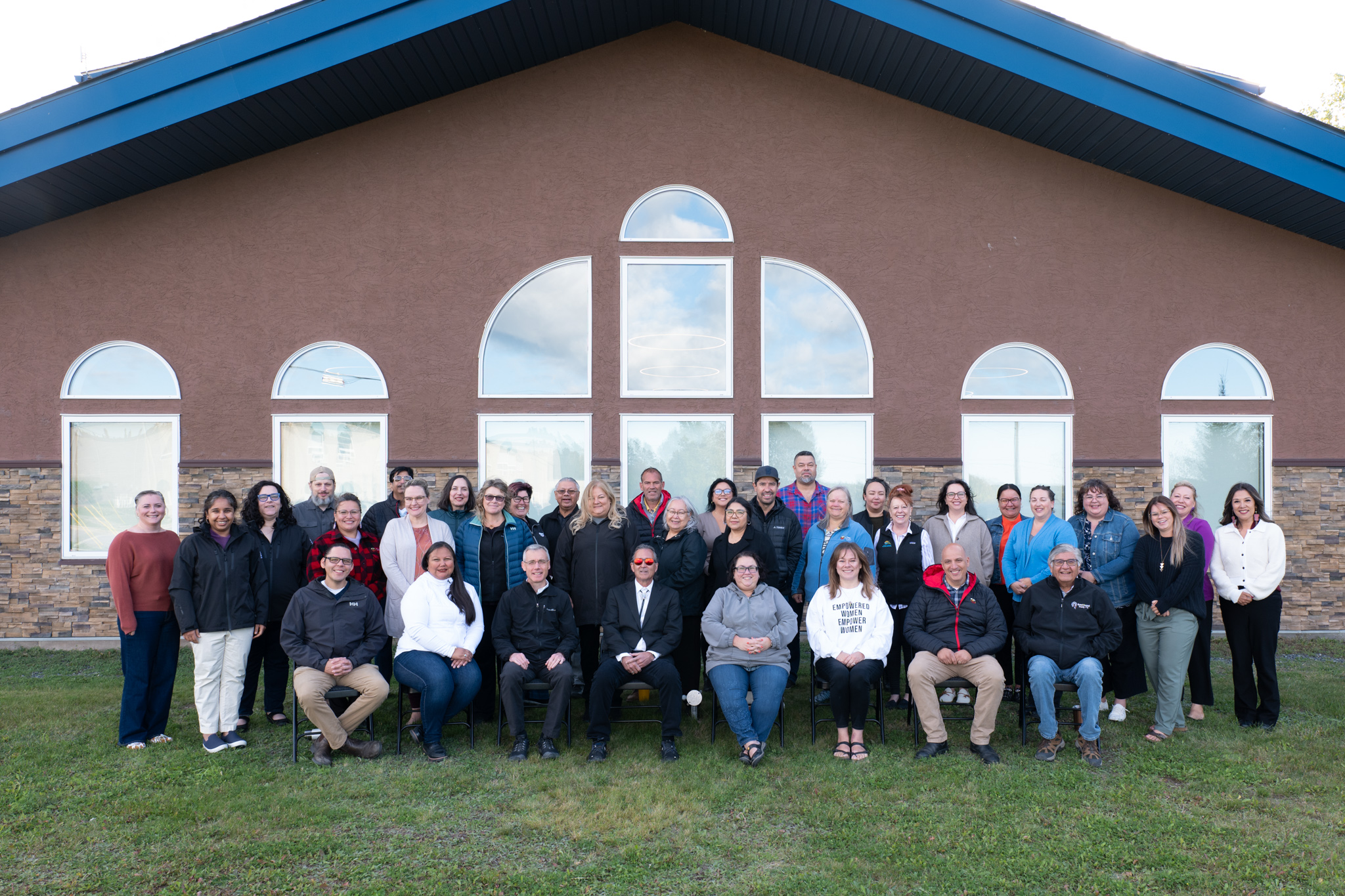In a significant step toward strengthening health service delivery for First Nations communities, representatives from the First Nations Health Authority (FNHA) in British Columbia (B.C.) visited the Sioux Lookout First Nations Health Authority (SLFNHA) for a two-day knowledge exchange session on October 2-3 in Sioux Lookout, Ontario. This visit was designed to foster learning, collaboration, and a shared commitment to improving health outcomes for First Nations people across both regions.
The event brought together leadership and health service professionals from FNHA and SLFNHA, two organizations responsible for delivering health care and wellness services to First Nations communities in their respective regions. Over the course of two days, participants exchanged insights on a wide range of topics essential to providing culturally safe, community-driven health care to First Nations populations.
“We’re looking at innovation as an organization, not just health transformation. I’m looking to create long lasting relationships across organizations and model what it would look like to work as separate organizations with similar goals. We can share this information with other organizations doing this same work across the country,” says Sonia Isaac-Mann, President and CEO, SLFNHA.
Presentations and group discussions covered areas critical to Indigenous health, including Social Determinants of Health, Mental Health and Wellness, Health Human Resources Strategy, and Traditional Wellness. FNHA and SLFNHA shared their unique approaches to engaging communities, building partnerships, and integrating traditional knowledge with modern health practices. The discussions highlighted the importance of addressing the systemic issues that impact health, such as access to funding and even emergency services on a base level.
The exchange also included presentations on Cultural Safety and Humility, a cornerstone of health services that ensures care is respectful of and responsive to the cultural identities and needs of Indigenous patients. Participants from both organizations shared best practices and lessons learned in embedding cultural safety into their health service delivery models.
“There is so much work to do, so many areas, so many challenges, in finding the necessary people. Much of what we do is work with people. As we improve our systems, as our people move to different organizations, they’re actually helping the whole system. I see it as a whole system change. So, when we have new opportunities, it’s good for all of us,” says Richard Jock, Chief Executive Officer, FNHA
SLFNHA, which serves 33 First Nations in northwestern Ontario, provided FNHA representatives with a comprehensive tour of its health service sites, including its main offices, the three hostels that support patient accommodation for remote communities accessing care, and the Meno Ya Win Health Centre that opened in 2010. The tours offered insight into the unique logistical challenges of delivering health care across vast and isolated regions, a challenge shared by both health authorities.
The knowledge exchange session culminated in a closing ceremony, where participants reflected on the two days of discussions and the shared commitment to advancing Indigenous health care. Leaders from both FNHA and SLFNHA expressed optimism about the future of their collaboration and the potential for ongoing exchanges of knowledge, resources, and expertise. The FNHA, which provides health services to over 200 First Nations communities in B.C., has long been a leader in the movement toward Indigenous-led health care. Their visit to SLFNHA is part of a broader effort to build relationships and share knowledge with other First Nations health authorities across Canada.
Eunice Joe, Executive Director, Vancouver Island expressed the importance of understanding that “we’re not managing a program; we’re governing our health,” as consistently conveyed by FNHA Elder Cliff Atleo through the establishment of FNHA.
This is the second Knowledge Exchange the organizations participated in together. SLFNHA went to Vancouver, B.C. during the first week in April 2024 to visit the FNHA.
